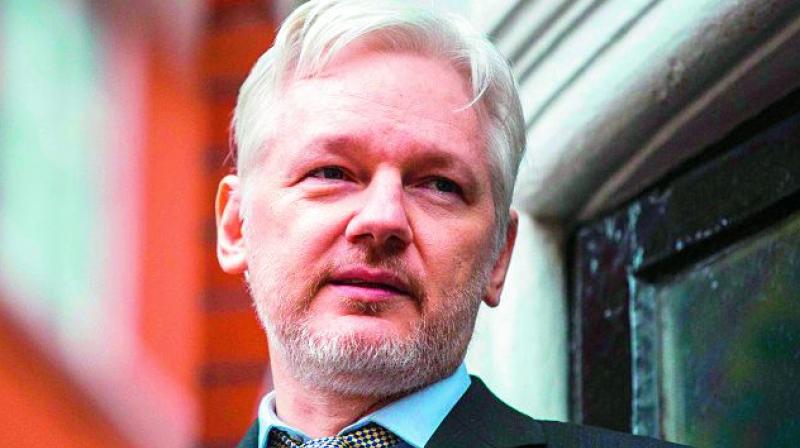Assange arrest poses a threat to the practice of journalism
The indictment of Assange is a threat to journalism and anyone who values freedom of the press.

Having to live inside the Ecuadorean embassy in the UK for seven years may have been an assault on his basic human rights, but WikiLeaks co-founder Julian Assange’s arrest in London is an assault on the freedom of speech and the press.
WikiLeaks gained prominence in April 2010 when it published a classified US military video showing a “2007 attack by Apache helicopters that killed a dozen people in Baghdad, including two Reuters news staff”. Four months later, in August 2010, the Swedish Prosecutor’s Office issued an arrest warrant for Assange on allegations of rape and sexual assault.
In December 2010, Assange was arrested in London, appeared in court, remained in custody for a week, and then got bail. In 2012, the UK’s Supreme Court refused Assange’s appeal against his extradition to Sweden. And in June 2012, Assange sought political asylum at the embassy of Ecuador in London. Sweden dropped the assault charges as it could not extradite Assange. The newly elected Ecuadorean President, Lenín Moreno, restricted Assange’s liberties even at the embassy: no Internet, no journalism and no visitors. Now, Morena, having cancelled Assange’s asylum, invited the British police, on April 11, 2019, to arrest him. Assange was arrested for “failing to surrender to the court”, a punishable offence in the UK. Once out of the embassy, Assange was “further arrested” on a US warrant. He did not walk out of the embassy but was carried by police officers. Assange looked frail, weak and old. Assange appeared before a UK magistrate within a couple of hours of his arrest. He remains in custody, and will appear before the court on May 2.
The punishment for bail jumping, a minor charge, is up to one year in prison. But the great threat to supporters of Assange, and to supporters of a free press and free speech, will heighten if Assange is extradited to the US where he could face, according to Nils Melzer, UN special rapporteur on torture, “real risk of serious violations of his human rights, including his freedom of expression, his right to a fair trial and prohibition of cruel, inhuman or degrading treatment or punishment”.
The indictment of Assange is a threat to journalism and anyone who values freedom of the press. The core thesis of the indictment is that he was encouraging Chelsea Manning, formerly in the US Army, to provide classified documents, and that he helped Manning maintain anonymity. Let me mention just one charge alleged against Assange. The US Department of Justice alleges that “Assange was knowingly receiving such classified records from Manning for the purpose of disclosing them on the WikiLeaks website”.
Is that not a definition of journalism? Journalists have an obligation to seek information and to take steps to protect their sources. If Assange is charged for this, it jeopardises how journalists conduct investigative journalism.
The charge against Assange is not new. But having considered the evidence, the Department of Justice during the Obama administration could not justify charging Assange without being accused of threatening press freedom. The Trump administration, though, has stepped up its pursuit of Assange. Manning spent seven years in prison and was released in 2017. Now, Manning has been imprisoned again for refusing to testify against WikiLeaks.
What does Assange’s arrest and possible extradition mean for the freedom of the press? First, remember Assange is an Australian (his Ecuadorean citizenship has been currently suspended) and not a US citizen. If Assange is extradited and charged, it creates a serious precedent against journalists and activists around the world.
Second, Assange is a journalist and a publisher. Previously, the US indicted sources and whistleblowers under the espionage act, but now wants to indict a journalist. If publishers and journalists are indicted, that means that journalists and editors could be charged for doing their job.
Third, Assange and Manning are charged for exposing American war crimes in Iraq. They ought to be supported in their work. “He is neither a hero nor a devil,” Noam Chomsky said about Assange, “but a person who is doing his civic responsibility”. Shouldn’t the authorities be held to account for not allowing him to discharge it?
By arrangement with Dawn

